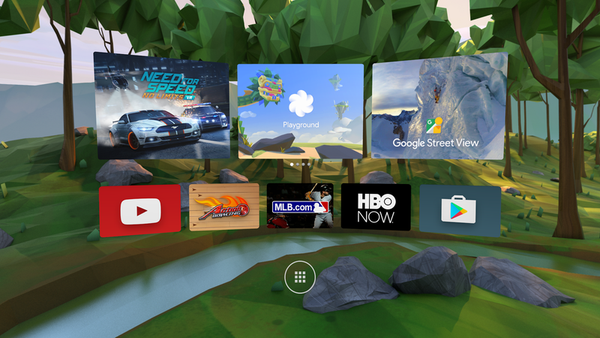Google announced its Android virtual reality platform named Daydream at its I/O developer conference on May 18, Wednesday. VR viewers and Daydream-ready phones will be available in the fall. The Android VR platform follows the Alphabet company's Cardboard disposable headsets that rolled out about two years ago.
Daydream will include hardware and software. It will be powered by the tech company's Android N devices using its OS standard, according to The Verge.
Google Cardboard worked with nearly any smartphone. However, Daydream will only run on new phones that include special components such as sensors and screens.
The mobile VR system will not provide the same caliber of virtual reality as Oculus Rift or HTC Vive. However, it will deliver a smoother and lower-latency result than a software update.
In addition, Google is baking a new feature named Android VR Mode into the OS' newest version. It will allow for navigation within virtual reality and also boost the performance of mobile apps.
The search giant has announced eight hardware partners to manufacture Daydream-ready smartphones. They include Alcatel, Asus, HTC, Huawei, LG, Samsung, Xiaomi, and ZTE.
Google will give VR fans the ability to access virtual reality versions of Street View, YouTube, Google Play Store, Google Movies, and Google Photos. It is also teaming up with media companies including Netflix and Electronic Arts to build Daydream apps.
Meanwhile, the design of Google's new VR headset is basically a new version of Cardboard. It will include a headband and provide better ergonomics, according to Recode.
The VR viewer will be a low-end device. It will be powered by a smartphone that provides its power, display, and head-tracking.
In addition, the VR headset will also include a small remote that contains sensors, buttons, and a trackpad. The controller can detect which direction the unit is facing and when it is tilted.
Google does not have plans to sell the Daydream controller headset directly to consumers. Instead it will be available to hardware companies.
Google I/O's keynote included announcements from CEO Sundar Pichai and other speakers about other topics. They included smart home gadgets, AI bots, and messaging apps.



























